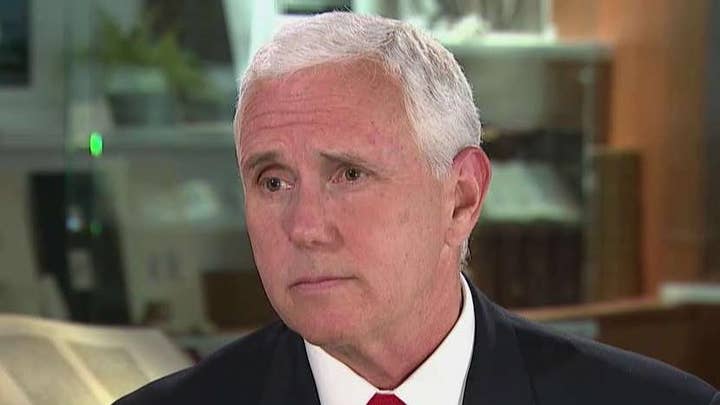Fox News Flash top headlines for May 22
Fox News Flash top headlines for May 22 are here. Check out what's clicking on Foxnews.com
The worst time to be a lawyer is when it is too late. Every graduation season reminds me of that truth in the practice of law.
Inevitably, a call comes from a concerned parent or a desperate student a day or two after their graduation ceremony. The student typically earned the right to address his or her peers at graduation, perhaps as the valedictorian, salutatorian, or just as a student leader asked to provide remarks to open or close the ceremony. They wanted to provide words of encouragement to their classmates. And, like many Americans, those words arise from their faith.
But in too many cases, school officials didn’t let them. In the week leading up to graduation, school officials asked the student to submit their remarks for review. Sadly, that’s when the conflict happens and is the best time to call a religious liberty attorney. But, tempers flare, emotions run high, and the house has to be prepared for the relatives coming to witness graduation. The call for help is never made, until it is too late.
AMERICAN PASTOR KNOWN FOR HATEFUL VIEWS BANNED FROM IRELAND, REPORT SAYS
Sometimes the call comes in time. When it does, we witness the lengths to which some school officials will go to censor speech otherwise protected by the First Amendment. One student showed me multiple drafts of his remarks, none satisfactory to the school officials. In fact, the final draft looked like a top-secret document redacted for public consumption rather than the personal remarks of a high school graduate. His principal had used a black marker to blot from view any reference to religion in his speech, threatening also to cut his microphone if he went off script.
School officials must remember that students retain their constitutional rights to freedom of religious speech and expression within the schoolhouse gates and all the way through the graduation ceremony.
Another student explained that the school sought — and obtained — a restraining order, banning her graduation prayer. Thankfully, First Liberty Institute intervened in time to prevent the judge from incarcerating — yes, incarcerating! — anyone defying his order forbidding her graduation prayer.
Still, dozens of high school graduates call too late or simply fear putting a stain on their graduation day. The last lesson any school official should leave with students should never be that they must hide their religious beliefs from public view. That fails the test of the First Amendment.
School officials must remember that students retain their constitutional rights to freedom of religious speech and expression within the schoolhouse gates and all the way through the graduation ceremony.
The law is quite clear on religious speech at graduation ceremonies: when a student earns the right to address his or her peers, having primary control over her remarks, those words are her own and fully protected by the First Amendment. Simply because that speech takes place at a graduation ceremony, on public school property does not convert that speech into that of the government, subjecting it to censorship by school officials.
In 2003, the U.S. Court of Appeals for the Ninth Circuit joined the long line of cases from the Supreme Court of the United States that protects religious student speech. In Hills v. Scottsdale Unified School District, the court explained that if school officials are confronted with religious speech on campus (including graduation), the “proper response is to educate the audience rather than squelch the speaker.”
That would seem obvious to most who yet hold to the principle of speech being free. Still, some may worry that religious speech on campus may pose a problem. It doesn't.
As the court explained in Hills, “Schools may explain that they do not endorse speech by permitting it. If pupils do not comprehend so simple a lesson, then one wonders whether the schools can teach anything at all. Free speech, free exercise, and the ban on establishment are quite compatible when the government remains neutral and educates the public about the reasons.”
CLICK HERE TO GET THE FOX NEWS APP
If you are graduating in the coming days or are the parent of a senior, perhaps you should print those last three sentences out and carry them with you to school.
If you are a school official: just let the kids talk to their peers. They earned it. Make the last lesson to your graduating seniors a positive one. Permitting their speech poses no threat to our republican democracy; it strengthens it.










































